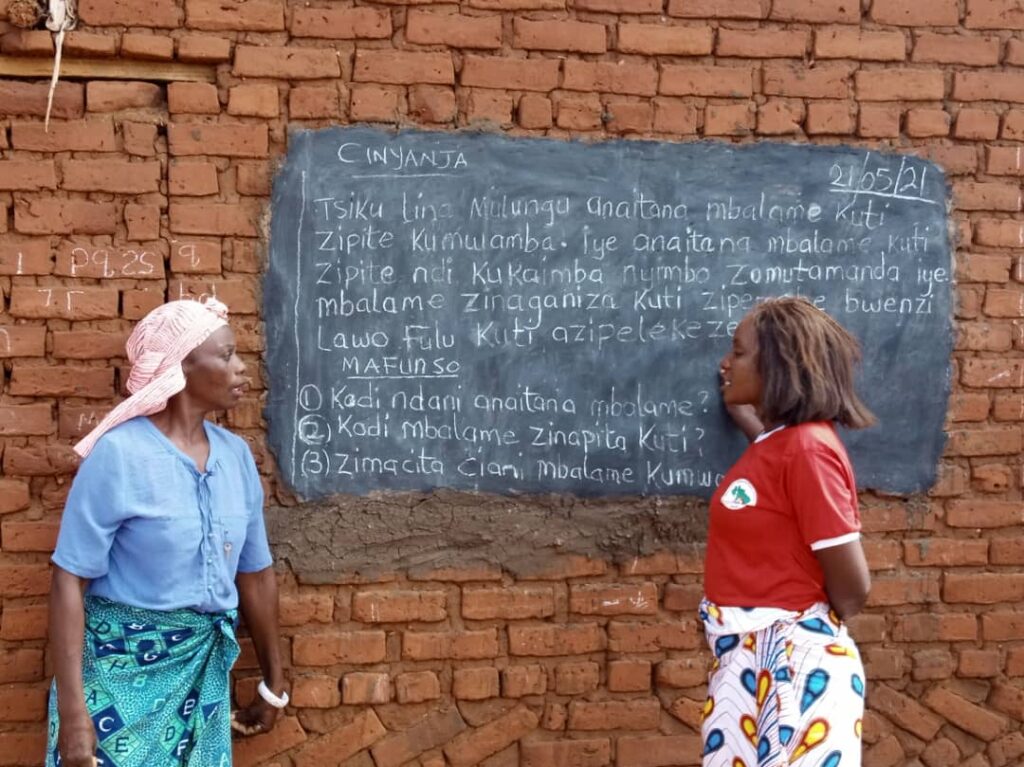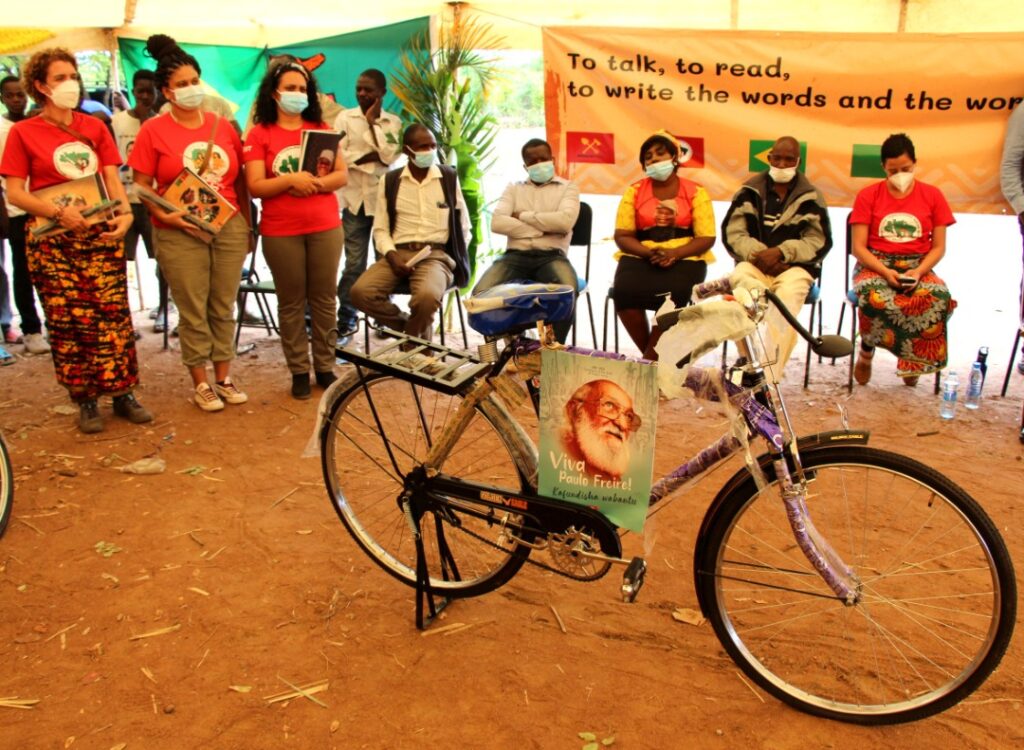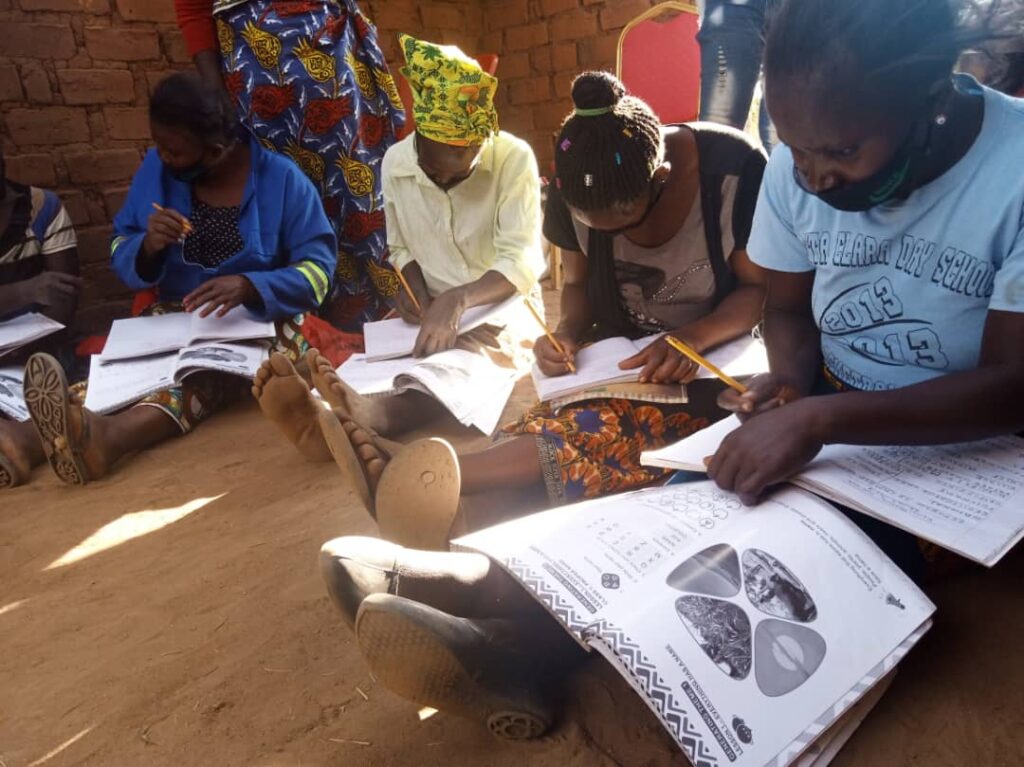Our thanks for contributions to the Bicycles for Zambia Campaign

April 25, 2022
From the MST web site
In December 2020 the MST launched the International Bicycles for Zambia Campaign. For almost a year and a half, several partners, friends and activists of the Movement contributed, through donations on the GoFundMe platform, to the purchase and distribution of bicycles that would facilitate the Literacy and Agroecology Campaign in the country.
Since 2008, the MST has carried out solidarity actions on the African continent through its Samora Machel Internationalist Brigade. After carrying out work in countries such as Mozambique and South Africa, the Brigade established itself in Zambia, a country in southern Africa with just over 13 million inhabitants from the most diverse ethnic groups.
Based on a diagnosis made with local partners, such as the Socialist Party of Zambia, the Brigade managed, with the help of professors who were friends with the MST in Brazil, to develop a literacy method based on the work of Paulo Freire and that was adapted to the reality of the country.
In Zambia, illiteracy rates are very high, 55.3% of the population does not read or write in English (the official language of the country). Women are the most affected in this scenario; only 10% manage to complete high school. These numbers are closely related to unemployment and, consequently, to the situation of social vulnerability in which many families find themselves.

Based on this reality, the MST is undertaking the training of teachers and volunteer teachers in various regions of the country, preparing the ground for the first literacy and agroecology classes. In just over a year, 100 classes were opened, forming a total of 2,000 people in the first stage of the Campaign.
The challenges emerged as the Literacy and Agroecology Campaign took place, one of the most notable obstacles for teachers and students was the difficulty in covering large distances, ranging from 15 to 30 kilometers, from their communities to the spaces where classes were held. It was with this in mind that the MST launched the International Bicycles for Zambia Campaign.

Distribution of the first bicycles
In August 2021, the first bicycles arrived for students and educators in the Eastern Province of the country (Eastern Province), in the territories of Chipangali, Chipata, Luangeni, Malambo and Mkaika. This first distribution included all volunteer teachers from the Literacy and Agroecology Campaign in these territories.
Cristina Bwanda, a volunteer teacher from the village of N’kwate, explains that in addition to classes, bicycles are an important means of transportation for other needs, such as going to hospitals, for example. “We also have long distances to go to hospitals and it [the bicycle] can help students get to a clinic”, she exemplifies.
Cristina’s statement demonstrates a latent reality in Zambia; the country suffers from little infrastructure and little, if any, public transport service. This reality is even more striking in the countryside, where most of the classes in the literacy campaign are located. In this scenario, the bicycle has become the most popular means of transport in the country. It is used for various tasks of daily life, such as going to work, school and hospital, but it is also used to transport food, work instruments, etc.
Donated bicycles also have a big impact on the life of the community as a whole. Since they are used collectively, they can serve more than one family for different activities, so the distribution of bicycles, in addition to making it possible to carry out the Literacy Campaign, represents an increase in the mobility of a much larger group of people.
Continuity in the Literacy and Agroecology Campaign

The Bicycles for Zambia Campaign ends with a positive balance. Funds were raised for the purchase of 410 bicycles, a part of which have already been distributed and the other part to be carried out throughout 2022, according to the Literacy and Literacy Campaign. Agroecology is developing.
We received support from several partners in Brazil, Europe and the USA. Each bike represents the worldwide effort and solidarity that has, and is changing, lives in this part of Africa. It is a means of collective locomotion in the communities covered, but even more, it is the concrete possibility of becoming literate and being able to live with dignity.
The Samora Machel Brigade and the MST thank everyone who, in some way, contributed to this campaign, whether with donations or publicity on social networks and organizational spaces. We reached the goal of maintaining the Literacy and Agroecology Campaign without stopping in the face of the greatest difficulty that was the distance between communities and classrooms.
But our struggle does not stop; the goal now is to continue teaching literacy and producing agroecological food with the people of Zambia. In this first stage of the campaign, many workshops on agroecological practices were held with the groups and the next step is to complete the production. We want to build model territories with food production without poison and totally free from illiteracy.
Our objective is to teach literacy to an additional 2000 people in the second phase of the Campaign, scheduled to take place later this year in six provinces of Zambia and, who knows, in the near future, to internationalize this experience to other countries on the African continent.
By the Samora Machel Internationalist Brigade
